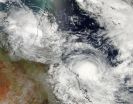(Press-News.org) Italian physicist Carlo Di Castro, professor emeritus at the University of Rome Sapienza, Italy, shares his recollections of how theoretical condensed matter physics developed in Rome, starting in the 1960s. Luisa Bonolis, a researcher at the Max Planck Institute for the History of Science in Berlin, Germany, invited Di Castro to reflect upon his research career, which he did in an interview published in EPJ H.
In this unique document, Di Castro talks about his upbringing during the second World War. He also explains how this childhood experience later influenced his philosophy, which he aptly summarises as follows: "the fear of the unknown must be overcome through knowledge and reason." Ultimately, this approach guided the career choices that led him to become a condensed matter physicist.
In this interview, Di Castro covers his research focus over the years, ranging from the phenomenology of superfluid helium and superconductors, renormalisation groups applied to critical phenomena and quantum systems, strongly correlated electron systems, and high-temperature superconductors.
He also discusses fundamental problems in condensed matter physics, such as the derivation of scaling, the metal-insulator transition and the interaction effects on disordered electron systems beyond the Anderson localisation, as well as the existence of heterogeneous states in cuprates.
Di Castro gives a unique, personal account of the evolution of these research fields since the 1960s. He relates the encounters he had with those who would go on to become the next generation of condensed matter physicists and explains his involvement in setting up the 'Rome Group', an authority in his field, together with Claudio Castellani.
He concludes by sharing his experiences working on research policy, and by relating his disappointment with the deterioration of the research system due to the political and economic crisis affecting Italy.
INFORMATION:
Reference:
C. Di Castro and L. Bonolis (2013), Personal remembrances of the beginnings of theoretical condensed matter physics in Rome, European Physical Journal H, DOI 10.1140/epjh/e2013-40043-5.
For more information visit: http://www.epj.org
The full-text article is available to journalists on request
All paths lead to Rome, even the path to condensed matter theory
Italian physicist Carlo Di Castro shares his thoughts on the development of theoretical condensed matter physics in Rome
2014-03-10
ELSE PRESS RELEASES FROM THIS DATE:
Two-dimensional material shows promise for optoelectronics
2014-03-10
A team of MIT researchers has used a novel material that's just a few atoms thick to create devices that can harness or emit light. This proof-of-concept could lead to ultrathin, lightweight, and flexible photovoltaic cells, light emitting diodes (LEDs), and other optoelectronic devices, they say.
Their report is one of three papers by different groups describing similar results with this material, published in the March 9 issue of Nature Nanotechnology. The MIT research was carried out by Pablo Jarillo-Herrero, the Mitsui Career Development Associate Professor of Physics, ...
Doctors often uncertain in ordering, interpreting lab tests
2014-03-10
A survey of primary care physicians suggests they often face uncertainty in ordering and interpreting clinical laboratory tests, and would welcome better electronic clinical decision support tools.
The results of the survey, sponsored by the U.S. Centers for Disease Control and Prevention, were published in the March-April issue of The Journal of the American Board of Family Medicine.
"The optimal testing pathways to arrive at correct diagnoses is changing, so it is difficult for primary care physicians to keep up with new and efficient testing algorithms," says Dr. John ...
Study finds pill may represent promising treatment for stubborn blood cancers
2014-03-10
(WASHINGTON, March 10, 2014) – A pill that suppresses a key regulator of cancer growth may provide hope to relapsed leukemia and lymphoma patients running out of treatment options for their aggressive, treatment-resistant disease, according to three reports* published online today in Blood, the journal of the American Society of Hematology.
Patients with blood cancer are typically administered a combination of chemotherapy and immunotherapy, the latter using the body's own immune system to help fight disease, as a first line of treatment. While chemotherapy has traditionally ...
Moffitt Cancer Center pioneers worldwide standard in diagnosing melanoma
2014-03-10
Moffitt Cancer Center researchers have been instrumental in making significant improvements to the diagnostic procedure called sentinel node biopsy for melanoma patients and teaching this procedure to physicians from around the world.
Sentinel nodes are the first lymph nodes to which cancer cells from a primary tumor like melanoma will spread. In the sentinel node biopsy procedure, a radioactive tracer and a blue-colored dye are injected at or near the melanoma site on the skin and tracked to the first lymph node(s). These sentinel nodes are then surgically removed and ...
Genomic test to rule out obstructive CAD may reduce need for more invasive diagnostics
2014-03-10
New Rochelle, NY, March 10, 2014–Nearly $7 billion is spent each year in the U.S. on diagnostic testing of the estimated three million people with symptoms of obstructive coronary artery disease (CAD). A new blood test that detects specific genes activated in individuals with obstructive CAD could exclude the diagnosis without the need for imaging studies or more invasive tests, reducing health care costs, as described in an article in Population Health Management, a peer-reviewed journal from Mary Ann Liebert, Inc., publishers. The article is available free on the Population ...
'Death stars' in Orion blast planets before they even form
2014-03-10
The Orion Nebula is home to hundreds of young stars and even younger protostars known as proplyds. Many of these nascent systems will go on to develop planets, while others will have their planet-forming dust and gas blasted away by the fierce ultraviolet radiation emitted by massive O-type stars that lurk nearby.
A team of astronomers from Canada and the United States has used the Atacama Large Millimeter/submillimeter Array (ALMA) to study the often deadly relationship between highly luminous O-type stars and nearby protostars in the Orion Nebula. Their data reveal ...
Gillian and Hadi spell double tropical trouble around Queensland
2014-03-10
On Friday, March 7 there were two tropical lows located east and west of Queensland, Australia. Those lows organized and intensified into Tropical Cyclone Gillian and Hadi and were caught together in one amazing image from NASA's Aqua satellite. While Gillian has already made one landfall and is expected to make another, Hadi is turning tail and running from the mainland.
NASA's Aqua satellite passed over Queensland on March 10 at 04:00 UTC and the Moderate Resolution Imaging Spectroradiometer instrument known as MODIS captured Tropical Cyclones Gillian in the Gulf of ...
Serpentine ecosystems shed light on the nature of plant adaptation and speciation
2014-03-10
Plants that live in unusual soils, such as those that are extremely low in essential nutrients, provide insight into the mechanisms of adaptation, natural selection, and endemism. A seminal paper by Arthur Kruckeberg from 1951 on serpentine plant endemism has served as a solid bedrock foundation for future research on the link between natural selection and speciation. A recent article in the American Journal of Botany focuses on how this paper has influenced subsequent research on local adaptation, evolutionary pathways, and the relationship between climate, soils, and ...
'Older people denied proper access to cancer care' according to Queen's study
2014-03-10
Older people globally are being denied proper access to cancer care, according to an editorial by Queen's University Belfast academic, Professor Mark Lawler of the Centre for Cancer Research and Cell Biology.
In an editorial in the BMJ (British Medical Journal) Professor Lawler said: "there is increasing evidence from around the world that elderly patients are being 'undertreated', leading to a 'survival gap' between older and younger patients.
"We need a fundamental change in cancer policy for the elderly patient. Our current practices are essentially ageist, as we ...
Diagnosing diseases with smartphones
2014-03-10
Smartphones are capable of giving us directions when we're lost, sending photos and videos to our friends in mere seconds, and even helping us find the best burger joint in a three-mile radius. But University of Houston researchers are using smartphones for another very important function: diagnosing diseases in real time.
The researchers are developing a disease diagnostic system that offers results that could be read using only a smartphone and a $20 lens attachment.
The system is the brainchild of Jiming Bao, assistant professor of electrical and computer engineering, ...
LAST 30 PRESS RELEASES:
Chimps’ love for crystals could help us understand our own ancestors’ fascination with these stones
Vaginal estrogen therapy not linked to cancer recurrence in survivors of endometrial cancer
How estrogen helps protect women from high blood pressure
Breaking the efficiency barrier: Researchers propose multi-stage solar system to harness the full spectrum
A new name, a new beginning: Building a green energy future together
From algorithms to atoms: How artificial intelligence is accelerating the discovery of next-generation energy materials
Loneliness linked to fear of embarrassment: teen research
New MOH–NUS Fellowship launched to strengthen everyday ethics in Singapore’s healthcare sector
Sungkyunkwan University researchers develop next-generation transparent electrode without rare metal indium
What's going on inside quantum computers?: New method simplifies process tomography
This ancient plant-eater had a twisted jaw and sideways-facing teeth
Jackdaw chicks listen to adults to learn about predators
Toxic algal bloom has taken a heavy toll on mental health
Beyond silicon: SKKU team presents Indium Selenide roadmap for ultra-low-power AI and quantum computing
Sugar comforts newborn babies during painful procedures
Pollen exposure linked to poorer exam results taken at the end of secondary school
7 hours 18 mins may be optimal sleep length for avoiding type 2 diabetes precursor
Around 6 deaths a year linked to clubbing in the UK
Children’s development set back years by Covid lockdowns, study reveals
Four decades of data give unique insight into the Sun’s inner life
Urban trees can absorb more CO₂ than cars emit during summer
Fund for Science and Technology awards $15 million to Scripps Oceanography
New NIH grant advances Lupus protein research
New farm-scale biochar system could cut agricultural emissions by 75 percent while removing carbon from the atmosphere
From herbal waste to high performance clean water material: Turning traditional medicine residues into powerful biochar
New sulfur-iron biochar shows powerful ability to lock up arsenic and cadmium in contaminated soils
AI-driven chart review accurately identifies potential rare disease trial participants in new study
Paleontologist Stephen Chester and colleagues reveal new clues about early primate evolution
UF research finds a gentler way to treat aggressive gum disease
Strong alcohol policy could reduce cancer in Canada
[Press-News.org] All paths lead to Rome, even the path to condensed matter theoryItalian physicist Carlo Di Castro shares his thoughts on the development of theoretical condensed matter physics in Rome




